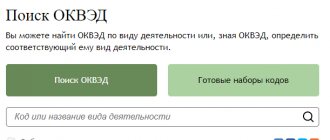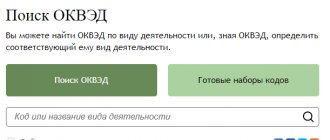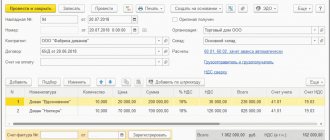Who needs to get a license
Article 12 of the Law “On Licensing of Certain Types of Activities” dated May 4, 2011 No. 99-FZ provides a list of types of activities for which licenses are required. There are 53 of them in total, among them:
- activities related to encryption and information security;
- activities related to weapons and military equipment;
- production of medicines and medical equipment;
- security and detective activities;
- provision of communication services, television and radio broadcasting;
- activities for the production of copies of audiovisual works, computer programs, databases and phonograms on any media;
- educational activities;
- pharmaceutical and medical activities;
- transportation by water and air transport;
- transportation of passengers and dangerous goods by rail;
- transportation of passengers by vehicles equipped to transport more than eight people.
In addition, there are a number of activities subject to licensing, which are regulated by separate laws, such as the activities of credit institutions and securities market participants, insurance activities and activities for the production and circulation of ethyl alcohol, alcoholic and alcohol-containing products (Article 1 of Law No. 99-FZ ).
If you find in these lists the activity you plan to engage in, you will need to obtain a license for it. For small businesses, it is relevant to obtain licenses for educational, medical, security activities, passenger transportation (in the manner prescribed by Law No. 99-FZ) and to obtain a license for the retail trade of alcohol, which we will consider separately.
List of activities subject to licensing
- development of aviation equipment, including dual-use aircraft;
- production of aviation equipment, including dual-use aircraft;
- repair of aviation equipment, including dual-use aircraft;
- testing of aviation equipment, including dual-use aircraft;
- activities for the distribution of encryption (cryptographic) tools;
- activities related to the maintenance of encryption (cryptographic) tools;
- provision of services in the field of information encryption;
- development, production of encryption (cryptographic) means protected using encryption (cryptographic) means of information systems, telecommunication systems;
- activities to identify electronic devices intended for secretly obtaining information in premises and technical means (except for the case if this activity is carried out to meet the own needs of a legal entity or individual entrepreneur);
- activities for the development and (or) production of means of protecting confidential information;
- activities for technical protection of confidential information;
- development, production, sale and acquisition for the purpose of sale of special technical means intended for secretly obtaining information by individual entrepreneurs and legal entities engaged in business activities;
- activities for the production of counterfeit-proof printed products, including forms of securities, as well as trade in these products;
- development of weapons and military equipment;
- production of weapons and military equipment;
- repair of weapons and military equipment;
- disposal of weapons and military equipment;
- trade in arms and military equipment;
- production of weapons and main parts of firearms;
- production of ammunition for weapons and components of cartridges;
- trade in weapons and major parts of firearms;
- trade in ammunition for weapons;
- display of weapons, main parts of firearms, ammunition for weapons;
- collecting weapons, main parts of firearms, ammunition for weapons;
- development and production of ammunition and their components;
- disposal of ammunition and their components;
- performance of work and provision of services for the storage, transportation and destruction of chemical weapons;
- operation of fire and explosion hazardous production facilities;
- operation of chemically hazardous production facilities;
- activities to conduct industrial safety assessments;
- production of explosive materials for industrial use;
- storage of explosive materials for industrial use;
- use of explosive materials for industrial use;
- activities for the distribution of explosive materials for industrial use;
- production of pyrotechnic products;
- activities for the distribution of pyrotechnic products of class IV and V in accordance with the national standard;
- fire fighting activities;
- installation, repair and maintenance of fire safety equipment for buildings and structures;
- production of surveying works;
- activities for the restoration of cultural heritage sites (historical and cultural monuments);
- geodetic activities;
- cartographic activities;
- performing work to actively influence hydrometeorological processes and phenomena;
- performing work to actively influence geophysical processes and phenomena;
- activities in the field of hydrometeorology and related areas;
- pharmaceutical activities;
- production of medicines;
- production of medical equipment;
- technical maintenance of medical equipment (except for the case if the specified activity is carried out to meet the own needs of a legal entity or individual entrepreneur);
- production of prosthetic and orthopedic products according to citizens’ orders;
- activities related to the circulation of narcotic drugs and psychotropic substances (cultivation of plants, production, manufacturing, processing, storage, transportation, sale, distribution, acquisition, use, destruction) included in List I in accordance with Federal Law of January 8, 1998 N 3-FZ “On Narcotic Drugs and Psychotropic Substances”;
- activities related to the circulation of narcotic drugs and psychotropic substances (development, production, manufacture, processing, storage, transportation, release, sale, distribution, acquisition, use, destruction) included in List II in accordance with the Federal Law of January 8, 1998 N 3-FZ “On narcotic drugs and psychotropic substances”;
- activities related to the circulation of psychotropic substances (development, production, manufacture, processing, storage, transportation, release, sale, distribution, acquisition, use, destruction) included in List III in accordance with Federal Law of January 8, 1998 N 3- Federal Law “On Narcotic Drugs and Psychotropic Substances”;
- activities related to the use of infectious disease agents;
- transportation of passengers by sea;
- transportation of goods by sea;
- transportation of passengers by inland water transport;
- transportation of goods by inland water transport;
- transportation of passengers by air (except for transportation carried out by aircraft of state aviation, experimental aviation, civil aviation, including general aviation, without charging a fee);
- transportation of goods by air (except for transportation carried out by aircraft of state aviation, experimental aviation, civil aviation, including general aviation, without charging a fee);
- transportation of passengers by motor transport equipped for the transportation of more than eight people (except for the case if the specified activity is carried out to meet the own needs of a legal entity or individual entrepreneur);
- transportation of passengers and luggage by rail;
- transportation of goods by rail;
- transportation of cargo luggage by rail;
- transportation of goods (movement of goods without concluding a contract of carriage) along public railway tracks, with the exception of the removal of arrived goods from the railway exhibition tracks, their return to the railway exhibition tracks;
- lost its power. — Federal Law of November 8, 2007 N 258-FZ;
- loading and unloading activities in relation to dangerous goods in inland water transport;
- loading and unloading activities in relation to dangerous goods in seaports;
- loading and unloading activities in relation to dangerous goods on railway transport;
- activities related to towing by sea (except for the case if this activity is carried out to meet the own needs of a legal entity or individual entrepreneur);
- lost its power. — Federal Law of November 8, 2007 N 258-FZ;
- have lost their power. — Federal Law of November 8, 2007 N 258-FZ;
- activities for the collection, use, neutralization, transportation, disposal of waste of I - IV hazard classes (activities for the accumulation of waste of I - V hazard classes, as well as activities for the collection, use, neutralization, transportation, disposal of waste of V hazard class are not subject to licensing);
- activities for the production and sale of special gaming equipment intended for the gambling business;
- no longer in force on June 30, 2009. — Federal Law of December 29, 2006 N 244-FZ;
- no longer in force on June 30, 2009. — Federal Law of December 29, 2006 N 244-FZ;
- lost its power. — Federal Law of November 8, 2007 N 258-FZ;
- non-state (private) security activities;
- non-state (private) detective activity;
- procurement, processing and sale of non-ferrous metal scrap;
- procurement, processing and sale of scrap ferrous metals;
- activities related to the employment of citizens of the Russian Federation outside the Russian Federation;
- lost its power. — Federal Law of November 8, 2007 N 258-FZ;
- lost its power. — Federal Law of November 8, 2007 N 258-FZ;
- activities for the production of copies of audiovisual works, programs for electronic computers (computer programs), databases and phonograms on any type of media (except for cases where this activity is independently carried out by persons who have the rights to use these objects of copyright and related rights by virtue of federal law or treaty);
- no longer in force on July 1, 2007. — Federal Law of December 29, 2006 N 252-FZ;
- auditing activities;
- lost its power. — Federal Law of December 6, 2007 N 334-FZ;
- lost its power. — Federal Law of December 6, 2007 N 334-FZ;
- lost its power. — Federal Law of December 6, 2007 N 334-FZ;
- lost its power. — Federal Law of December 6, 2007 N 334-FZ;
- lost its power. — Federal Law of November 8, 2007 N 258-FZ;
- activities for the manufacture and repair of measuring instruments;
- lost its power. — Federal Law of November 8, 2007 N 258-FZ;
- space activities;
- medical activities;
- lost its power. — Federal Law of November 4, 2007 N 250-FZ;
- activities to ensure aviation security;
- lost its power. — Federal Law of November 8, 2007 N 258-FZ;
- lost its power. — Federal Law of November 8, 2007 N 258-FZ;
- no longer in force on July 1, 2007. — Federal Law of December 29, 2006 N 252-FZ;
- design of buildings and structures, with the exception of structures for seasonal or auxiliary purposes;
- construction of buildings and structures, with the exception of structures for seasonal or auxiliary purposes;
- engineering surveys for the construction of buildings and structures, with the exception of structures for seasonal or auxiliary purposes;
- no longer in force on July 1, 2007. — Federal Law of December 29, 2006 N 252-FZ;
- no longer in force on July 1, 2007. — Federal Law of December 29, 2006 N 252-FZ;
- activities related to the organization and conduct of gambling in bookmakers' offices and sweepstakes.
Licensing of activities for the operation of fire and explosion hazardous production facilities is terminated from the date of entry into force of technical regulations establishing mandatory requirements for licensed types of activities.
Licensing of activities for the operation of chemically hazardous production facilities is terminated from the date of entry into force of technical regulations establishing mandatory requirements for licensed types of activities.
Licensing of activities for conducting industrial safety examinations ceases from the date of entry into force of technical regulations establishing mandatory requirements for licensed types of activities.
Licensing of activities for the installation, repair and maintenance of fire safety equipment for buildings and structures is terminated from the date of entry into force of technical regulations establishing mandatory requirements for licensed types of activities.
Licensing of activities for the production of surveying works ceases from the date of entry into force of technical regulations establishing mandatory requirements for licensed types of activities.
Licensing of geodetic and cartographic activities ceases from the date of entry into force of technical regulations establishing mandatory requirements for licensed types of activities.
Licensing of activities for the production of medical equipment, as well as for the technical maintenance of medical equipment (except for the case if the specified activity is carried out to meet the own needs of a legal entity or individual entrepreneur) is terminated from the date of entry into force of technical regulations establishing mandatory requirements for licensed types of activities.
Licensing of audit activities will be discontinued on January 1, 2010 (clause 5.2 of Article 18 of this document).
Licensing of activities for the manufacture and repair of measuring instruments is terminated from the date of entry into force of technical regulations establishing mandatory requirements for licensed types of activities.
From January 1, 2010, subclause 101.1 of clause 1 of Article 17 loses force (clause 1 of Article 3 of the Federal Law of July 22, 2008 N 148-FZ).
From January 1, 2010, subclause 101.2 of clause 1 of Article 17 loses force (clause 1 of Article 3 of the Federal Law of July 22, 2008 N 148-FZ).
From January 1, 2010, subclause 101.3 of clause 1 of Article 17 loses force (clause 1 of Article 3 of the Federal Law of July 22, 2008 N 148-FZ). no longer in force on July 1, 2007. — Federal Law of December 29, 2006 N 252-FZ; no longer in force on July 1, 2007. — Federal Law of December 29, 2006 N 252-FZ;
Where to apply for a license
Licenses are issued by territorial branches of special licensing bodies, which are specified in Government Decree No. 957 of November 21, 2011, some of which we indicate in the table:
| Kind of activity | Licensing authority |
| Private security and detective activities | Ministry of Internal Affairs of Russia |
| Medical and pharmaceutical activities, drug production | Roszdravnadzor, Rosselkhoznadzor |
| Educational activities | Rosobrnadzor |
| Passenger transportation by road | Rostransnadzor |
Licenses for the retail sale of alcohol are issued by the Federal Service for Regulation of the Alcohol Market. Contacts of regional departments of Rosalkogolregulirovanie can be found on this website.
Licensed activities for 2022
Types of activities in Russia for which a license must be obtained in accordance with Art. 12 of Law No. 99-FZ, we have collected in this list:
- development, production, distribution of encryption tools, information systems and telecommunication systems, performance of work, provision of services, maintenance in this area, with the exception of the own needs of an organization or individual entrepreneur;
- development, production, sale and acquisition for the purpose of sale of special technical means intended for secretly obtaining information;
- activities to identify electronic devices intended for secretly obtaining information, with the exception of the own needs of the organization or individual entrepreneur;
- development and production of security equipment, activities for technical protection of confidential information;
- production and sale of counterfeit-proof printed products;
- development, production, testing and repair of aircraft;
- development, production, testing, installation, assembly, maintenance, repair, disposal and sale of weapons and military equipment;
- development, production, trade, testing, storage, repair and weapons;
- development, production, testing, storage, sale and disposal of ammunition, pyrotechnic products of classes IV and V;
- activities for the storage and destruction of chemical weapons;
- operation of explosion and fire hazardous and chemically hazardous production facilities of hazard classes I, II and III;
- activities to extinguish fires in populated areas, at production facilities and infrastructure facilities;
- activities for installation, maintenance and repair of fire safety equipment for buildings and structures;
- production of medicines;
- production and maintenance of medical equipment, except if it is necessary for the own needs of the organization or individual entrepreneur;
- trafficking in narcotic drugs, psychotropic substances, cultivation of narcotic plants;
- activities in the field of use of pathogens of infectious diseases of humans and animals and GMOs of III and IV degrees of potential danger;
- activities related to the transportation of passengers by inland water transport and sea transport;
- activities related to the transportation of dangerous goods by inland water transport and sea transport;
- activities related to the transportation of passengers by air, with the exception of the own needs of the organization or individual entrepreneur;
- activities for the transportation of goods by air, with the exception of the own needs of the organization or individual entrepreneur;
- activities for the transportation of passengers by motor transport, more than eight people, with the exception of the own needs of the organization or individual entrepreneur;
- activities related to the transportation of passengers by rail;
- activities related to the transportation of dangerous goods by rail;
- loading and unloading activities of dangerous goods on railway, inland water transport in seaports;
- activities related to towing by sea transport, with the exception of the own needs of the organization or individual entrepreneur;
- activities for collection, transportation, processing, disposal, neutralization, disposal of waste of I - IV hazard classes;
- activities related to the organization and conduct of gambling in bookmakers and sweepstakes;
- private security and detective activities;
- procurement, storage, processing and sale of scrap ferrous metals, non-ferrous metals;
- provision of employment services for Russian citizens outside the Russian Federation;
- provision of communication services;
- television and radio broadcasting;
- activities for the production of copies of audiovisual works, programs for electronic computers, databases and phonograms on any type of media, with the exception of independent activities of persons holding copyright and related rights;
- activities in the field of using sources of ionizing radiation, with the exception of the case if these sources are used in medical activities;
- educational activities;
- geodetic and cartographic works for federal purposes;
- production of surveying works;
- work on active influence on hydrometeorological and geophysical processes and phenomena;
- activities in the field of hydrometeorology and related areas;
- medical activities;
- pharmaceutical activities;
- activities to preserve cultural heritage sites of the peoples of the Russian Federation;
- activities to conduct industrial safety assessments;
- activities related to the handling of explosive materials for industrial use;
- entrepreneurial activity in the management of apartment buildings;
- performing work on quarantine phytosanitary disinfection;
- activities for the production of biomedical cell products;
- activities for the maintenance and use of animals in zoos, animal parks, circuses, animal theaters, dolphinariums, oceanariums.
License requirements
A license can be obtained only if certain requirements are met: the availability of a technical base (premises, equipment, special documentation); workers with the necessary qualifications and specialties; production control systems; size of the authorized capital, etc. These requirements are given for each type of licensed activity in separate Regulations approved by Government resolutions.
For example, licensing requirements for transporting passengers by road are specified in Government Decree No. 195 dated February 27, 2019. An applicant for such a license must have:
- vehicles that meet the technical requirements for transporting passengers and are equipped with GLONASS satellite navigation equipment;
- premises and equipment for vehicle maintenance and repair;
- drivers of vehicles who have concluded an employment contract or a contract for the provision of services with him, have the necessary qualifications and work experience, and have also undergone a medical examination;
- a specialist who carries out a pre-trip medical examination of vehicle drivers or has an agreement with a medical organization or individual entrepreneur who has the appropriate license.
You can familiarize yourself with the requirements for issuing licenses for your type of activity by contacting the appropriate licensing authority. We will consider the requirements for obtaining a license to sell alcohol below in a separate section.
Documents for obtaining a license
An application for a license and a package of supporting documents specified in Art. 13 of the law of May 4, 2011 No. 99-FZ. Considering that types of activities controlled by different services are subject to licensing, the forms of such applications will differ.
The application must indicate the name, legal form, and location of the applicant; licensed type of activity; TIN; extract data from the Unified State Register of Individual Entrepreneurs or the Unified State Register of Legal Entities; information about payment of state duty.
In addition to the application, copies of documents are submitted, the list of which is determined by the regulations on licensing a specific type of activity and which indicate the applicant’s compliance with licensing requirements, as well as a list of all documents. You need to find out exactly what documents are needed from the licensing authority or find the relevant legal act yourself.
The list of information indicated in the application and the list of documents attached to it is exhaustive (Article 13 (4) of Law No. 99-FZ dated May 4, 2011), that is, you should not be required to provide other documents.
When is a license needed?
The list of activities for which licenses are required is strictly defined in paragraph 1 of Art. 12 99-FZ. If an activity is not on the list, then permission is not required for its implementation.
A separate license is provided for each type of activity. which operates throughout the Russian Federation. You just need to notify the licensing authority of the region where you plan to expand.
Documents to obtain a license must be submitted immediately after state registration. Or before starting a licensed activity.
The requirements that an organization must meet in order to obtain a license and carry out activities are established by the licensing regulations for a specific type of activity.
For example, if you decide to engage in medical practice, then in order to obtain a license you must meet the following basic characteristics:
- the premises must be owned or rented;
- there must be medical equipment, devices necessary for the provision of services;
- managers and responsible employees must have higher medical education, appropriate qualifications and work experience of at least 5 years;
- employment contracts must be concluded with employees;
- availability of quality and safety control.
There may also be restrictions on the organizational and legal form, for example, an individual entrepreneur cannot obtain a license for the production and sale of alcoholic products; licenses are provided exclusively to legal entities.
What documents are needed to obtain a license?
The following package of documents must be submitted to the licensing authority:
- application in the prescribed form;
- copies of the organization’s constituent documents, certified by a notary;
- necessary documents that may be established by the regulations on licensing a specific type of activity;
- list of attached documents.
The application form is established by the regulations on licensing a particular type of activity.
How much does a license cost?
The amount of the state fee for a license is established by Article 333.33 of the Tax Code of the Russian Federation. The article is very long, so we’ll tell you where to look. We find paragraph 1, subparagraph 92. The state duty is 7,500 rubles for all types of licensed activities, with the exception of:
- banking operations (0.1% of the authorized capital, but not more than 500 thousand rubles);
- production, storage, purchase, supply of ethyl alcohol and alcoholic products (from 800 thousand to 9.5 million rubles);
- retail sale of alcoholic beverages - 65 thousand rubles for each year of license validity;
- entrepreneurial activity for managing apartment buildings - 30 thousand rubles.
Please note that the state fee is paid once for the entire validity period of the license. In general, the license term is not limited, but for some types of activities it is established (with the possibility of extension), for example, the term of an alcohol license should not exceed five years.
In case of refusal to issue a license, the state fee is not refunded. The Constitutional Court considered the case of returning 40 thousand rubles to the applicant in connection with the refusal to issue a license for the retail sale of alcohol (Resolution of the Constitutional Court of May 23, 2013 No. 11-P). Even the judges themselves did not agree on this issue; one of them expressed a dissenting opinion, the essence of which was “Formally correct, but in essence it is a mockery.” Therefore, before paying for a license, we recommend that you first contact the relevant licensing authority to ensure that you can meet the necessary requirements to obtain it.
How to get a license
After you have found the contacts of the licensing authority, prepared the necessary documents and paid the state fee, you need to apply for a license. Documents can be submitted:
- in person, during a visit to the licensing authority;
- by registered mail with acknowledgment of delivery;
- in the form of an electronic document signed with an electronic signature.
Upon receipt of documents, the license applicant is given a copy of the inventory with a mark on the date of receipt (in person or by registered mail with acknowledgment of receipt). If an incomplete set of documents or a violation of the requirements is discovered in the submitted package of documents, then within three working days from the date of receipt of the application the applicant is given (sent) a notice of the need to eliminate the violations within thirty days. After the violations are eliminated, a reasoned decision to consider the application for a license or to return the application is made within three working days.
If there were no complaints about the documents, then the decision to issue a license is made within five working days, and the license itself is handed over to the licensee or sent to him by registered mail with notification within three working days after this decision. It is possible to obtain a license in the form of an electronic document, if indicated in the application.
The issuance of a license may be refused, then the decision on this must indicate the reasons for the refusal with references to regulatory legal acts or details of the inspection report of the license applicant, if the refusal was based on non-compliance with licensing requirements.
A license is issued in a standard form approved by Decree of the Government of the Russian Federation dated September 14, 2022 No. 1559. If the license has been damaged or lost, you can obtain a duplicate in the manner prescribed by Article 17 of Law No. 99-FZ.
The license is valid throughout the entire Russian Federation, but if the licensee changes the region of activity, he must inform the licensing authority of the subject of the Russian Federation (territory, region, republic) where he intends to work.
Where to apply and deadlines for obtaining a license
Licensing authorities are identified by type of activity in the List approved by Decree of the Government of the Russian Federation of November 21, 2011 N 957. You must contact their regional departments. For example, the Ministry of Emergency Situations carries out licensing of fire safety activities, the Ministry of Internal Affairs - security activities, Roszdravnadzor - pharmaceutical activities.
Within three working days from the date of submission of the application, the licensing authority makes a decision on consideration or return with a reasoned justification of the reasons for the return.
If the application reveals a violation of the requirements or the documents are not presented in full, then within three working days the licensing authority will issue a notice of the need to eliminate. 30 days are given for correction.
Within 45 working days from the date of receipt of the application and documents, the completeness and accuracy of the information is checked and a decision is made to grant a license. The decision is formalized by order (instruction) of the licensing authority. Within 3 working days after the license is signed by the licensing authority, the entrepreneur is sent a notification - by email or by mail. At the same time, they can send an extract from the register if you chose this option in the application.
Paper licenses will not be issued as of January 1, 2022. Only the registry entry matters.
How to get a liquor license
Retail sale of alcoholic beverages, including beer, is a fairly popular activity for our users, so we will tell you in more detail how to obtain an alcohol license. The licensing of this type of activity is regulated by special law No. 171-FZ of November 22, 1995. First, let's clarify the issue of selling beer (as well as beer drinks, cider, poire, mead).
Beer is an alcoholic product, but its sale is regulated by certain provisions of the law. The sale of beer is not subject to special requirements for the retail sale and consumption of alcoholic products specified in Article 16 of Law No. 171-FZ, and a license is not required to sell beer.
Beer can only be sold in stationary facilities (shops), but there are no specific requirements for their area, as for the sale of other alcoholic products. And one more difference between beer and other alcohol is that it can be sold not only by organizations, but also by individual entrepreneurs.
As for alcohol in general, obtaining a license for its production and circulation, in addition to Law No. 171-FZ, is also regulated by special Administrative Regulations. The documents for obtaining a license for the production of alcohol differ from those submitted for obtaining licenses for other types of activities. In our article we will consider licensing requirements only for the retail sale of alcohol, because... It makes sense to consider the requirements for its production, storage and wholesale circulation separately.
To obtain a license, the applicant must:
- be a legal entity (individual entrepreneurs cannot sell alcohol other than beer);
- own or long-term (from one year) lease stationary retail facilities and warehouses;
- the total area of such premises for the retail sale of alcohol must be at least 50 square meters. m in urban areas and at least 25 sq. m in rural areas;
- When selling alcohol in urban areas, the licensee must use a cash register;
- have an authorized capital of a certain size (the requirement is established by regional licensing authorities), but not more than 1 million rubles.
Regional licensing authorities may establish other additional requirements, so before collecting the necessary documents and paying the state fee, contact the relevant district department of Rosalkogolregulirovanie for detailed information. Their contacts, as well as the license application form, can be found in the Administrative Regulations.
Laws licensing activities in Russia
The types of activities for which a license must be obtained are established by federal laws. In addition to the licensed types of activities provided for by Law No. 99-FZ of May 4, 2011 “On licensing of certain types of activities,” there are other areas of business that are also subject to licensing. These types of activities in the Russian Federation are regulated by separate laws:
- use of atomic energy - Law No. 170-FZ of November 21, 1995;
- production and circulation of alcohol - Law No. 171-FZ of November 22, 1995;
- activities of credit institutions - Law No. 395-1 of December 2, 1990;
- protection of state secrets - Law No. 5485-1 of July 21, 1993;
- holding auctions - Law No. 325-FZ of November 21, 2011;
- professional activity in the securities market - Law No. 39-FZ of April 22, 1996;
- activities of NPFs – Law No. 75-FZ of 05/07/1998;
- clearing activities – Law No. 7-FZ of 02/07/2011;
- insurance activities - Law No. 4015-1 of November 27, 1992;
- space activities - Law No. 5663-1 of 08/20/1993.
As you can see, these are mainly areas that require serious financial investments, so small businesses rarely choose such areas of activity, with the exception of the sale of alcohol. But the list of licensed types of activities specified in Law No. 99-FZ of 05/04/2011 includes many areas popular among novice businessmen, so we suggest that you familiarize yourself with it in more detail.
Re-registration, suspension and renewal of a license
If the licensee’s data specified in Article 18 of Law No. 99-FZ changes, he must contact the licensing authority to reissue the license. Re-registration is required in the following cases:
- reorganization of a legal entity;
- changes in personal data and place of residence of the individual entrepreneur;
- change of legal address and name of the organization;
- changing the address at which the licensed type of activity is carried out.
The procedure for re-issuing a license is given in the article in Article 18 of Law No. 99-FZ, the amount of the state duty ranges from 600 to 2600 rubles.
The licensing authority not only issues licenses, but also monitors the activities of the licensee. If during a scheduled or unscheduled inspection violations of licensing requirements are discovered, an order will be issued to eliminate them, and if this does not happen within the specified period, the activity of the license may be suspended (Article 20 of Law No. 99-FZ). During the period of suspension, the licensed activity is prohibited.
Once the requirements of the licensing authority are met, the license is renewed. Information on suspension and renewal of licenses is entered into a special register.
Cancellation and termination of license
In case of failure to comply with the requirements due to which an order was issued or the license was suspended, it must be canceled at the request of the licensing authority. The license is terminated within 10 working days after such a court decision.
The license may be terminated voluntarily if :
- an application has been submitted to terminate the licensed type of activity;
- the activity of an individual as an individual entrepreneur has been terminated;
- The activities of a legal entity have been terminated (except for reorganization).
When terminating the activities of an individual entrepreneur or legal entity, there is no need to report this to the licensing authority; this will be done by the tax inspectorate.
Responsibility for working without a license
Administrative liability is provided for violation of licensing laws:
- for activities without a license under Article 14.1 (2) of the Code of Administrative Offenses of the Russian Federation: a fine for organizations from 40 to 50 thousand rubles, for individual entrepreneurs - from 4 to 5 thousand rubles, while confiscation of products, production tools and raw materials is allowed;
- for activities in violation of the terms of the issued license under Article 14.1 (3) of the Code of Administrative Offenses of the Russian Federation: a fine for organizations from 30 to 40 thousand rubles, for individual entrepreneurs - from 3 to 4 thousand rubles;
- for activities in gross violation of the terms of the issued license under Article 14.1 (4) of the Code of Administrative Offenses of the Russian Federation: a fine for organizations from 100 to 200 thousand rubles, for individual entrepreneurs - from 4 to 8 thousand rubles or administrative suspension of activities for up to 90 days.
If, in this case, activities without a license caused major damage to citizens, organizations, the state or brought in large-scale income (more than 1.5 million rubles), then it is possible to bring criminal liability under Article 171 of the Criminal Code of the Russian Federation - a fine of up to 300 thousand rubles or arrest up to six months.
License for educational activities
Everyone can gnaw on the granite of science, but not everyone can teach it. To bring the light of knowledge to the masses, you need to be brave, persistent and selfless, because collecting a heap of documents is very nerve-wracking and wrinkle-inducing.
Educational activities are included in the list of licensed activities, according to Article 12 of the Federal Law “On Licensing of Certain Types of Activities”. Moreover, this does not apply to innovative educational organizations. The law also stipulates the indefinite validity of the license.
Checklist “How to obtain a license for educational activities.”
As you may have noticed, the list contains documents for training future pharmacists, detectives, private security guards, religious ministers and even those close to the government. secret.
Organizations providing educational services usually do not hide their licenses. On the contrary, they try to talk about when and why the permit was received. And if a scan of the license is missing, then write the number. You can check current licenses on the Rospotrebnadzor website.
Anya Yudina , marketer
Do you want to transfer routine tasks into safe hands? Leave a request! Let's connect and pick up important matters.
Phone, Name By leaving a request, you agree to the rules
Hold your breath...
For some reason the application was not sent . Please call us at 8 800 700 39 81







